Joseph-Louis Mundwiller
Nacimiento : 1886-04-10, Mülhausen, Alsace, Germany [now Mulhouse, Haut-Rhin, France]
Muerte : 1967-07-09

Director of Photography
The itinerant musician Lampluche, having found a musical score on the banks of a river and a full wallet, was taken to the neighboring town for the famous composer Maxence Leroy. The inhabitants of the small town only dream of music, so Lampluche is very well received. But Maxence Leroy arrives in the city.

Director of Photography
Because the shiner Titin has fallen in love with a singer, he braves the latter's protector, the baron, and passes himself off as an insurer in connection with a pearl necklace that is circulating. Bitters get involved, Titin kidnaps the beauty and leaves the pearls to the baron.

Director of Photography
A tramp, a vagrant, returns twenty years later to the village where he had seduced a young girl. He forces her father to marry her off.
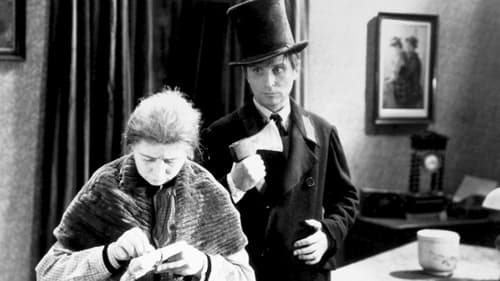
Director of Photography
Pierre Chenal's adaptation of Dostoyevsky's novel, starring Pierre Blanchar and Harry Baur. Bears the influence of German Expressionism and serves as an early forerunner of poetic realism.

Director of Photography
The story focuses on a street in the Parisian banlieue where Italian and French workers live. Their neighborhood will soon be demolished and a mysterious character hides himself in this street.

Director of Photography
Un ambicioso comerciante pretende casar a su hija con un hombre rico, pero la chica prefiere a un joven poeta sin trabajo. El padre acaba aprobando la boda a regañadientes, pero le exige al poeta que trabaje en su tienda. El joven, que no consigue adaptarse, de repente, gana el premio Goncourt. Entonces el empresario llega a la conclusión de que el maridaje entre mercancías y poesía puede ser un negocio redondo.

Director of Photography
Siglo XVI, Guerras de religión. El rey Carlos IX y Catalina de Médicis visitan el Sur de Francia para apaciguar los enfrentamientos religiosos. En honor de la reina se organiza un torneo a pesar del edicto real que prohíbe tales festejos.

Director of Photography
In 1776, an inventor conceals a Polish nobleman in his chess-playing automaton, a machine whose fame leads it to the court of the Russian empress.
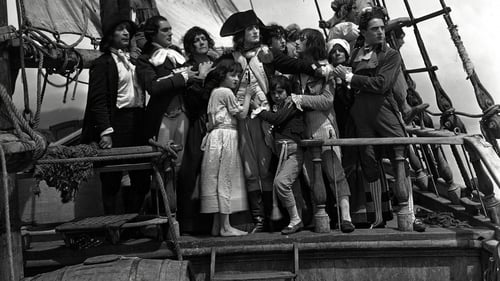
Director of Photography
El golpe de estado del 18 Brumario de 1799, que significó el fin de la Revolución Francesa, puso el poder en manos de Bonaparte, el más prestigioso de los generales franceses, sobre todo después de sus brillantes campañas en Italia y en Egipto. Desde 1799, Napoleón no sólo fomentó la difusión de las ideas revolucionarias, sino que, además, se lanzó a la conquista de Europa. En 1804 se autoproclamó emperador de Francia con el nombre de Napoleón I.

Additional Photography
El golpe de estado del 18 Brumario de 1799, que significó el fin de la Revolución Francesa, puso el poder en manos de Bonaparte, el más prestigioso de los generales franceses, sobre todo después de sus brillantes campañas en Italia y en Egipto. Desde 1799, Napoleón no sólo fomentó la difusión de las ideas revolucionarias, sino que, además, se lanzó a la conquista de Europa. En 1804 se autoproclamó emperador de Francia con el nombre de Napoleón I.
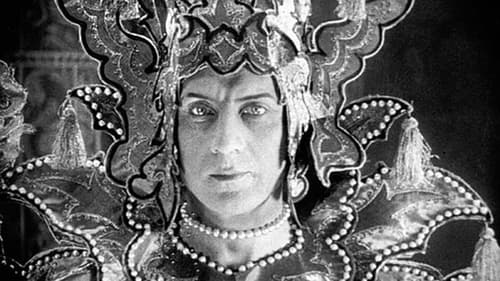
Director of Photography
In the kingdom of the Moguls, Prince Roudghito-Sing, a young officer of the palace, falls in love with Zemgali, a captive princess held prisoner and coveted by the Grand Khan. Fleeing the country, he takes refuge in Paris and his presentability allows him to be hired as an actor by a French film company. The trouble is that Anna, the star of the movie, is attracted to him. Which displeases banker Morel, the producer and Anna's lover... Written by Guy Bellinger

Cinematography
A young woman, forced into a loveless marriage, takes a lover.

Cinematography
By 1820, Edmund Kean is the most admired Shakespearan actor. But if his art is peerless, his free lifestyle is ill thought of, particularly by the high society. Kean has fallen passionately in love with Countess Elena de Koefeld, the wife of the ambassador of Denmark. Elena loves him too but hesitates to give up her rank in society and follow Kean. On the other hand, Anna, a rich heiress who refuses to marry Lord Mewill, the husband chosen by her parents, confesses her love for Kean and decides to become an actress like him... The aristocrats, outraged by Edmund's profligate ways, decide to boycott his performances and his career is broken. Kean does not recover from such a blow and, on a stormy night, dies in Elena's arms.
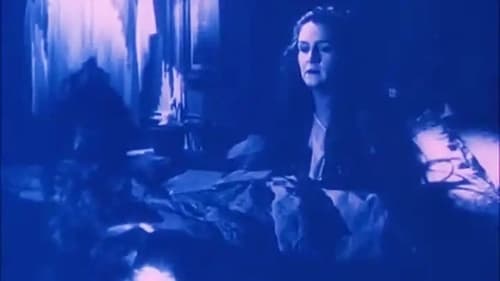
Cinematography
A woman, named simply "Elle" and her husband, a wealthy industrialist, are not on the best of terms. While she enjoys the way he caters to her every whim, she wonders whether he really loves her. He, on the other hand, torments himself by imagining rivals. One morning she awakens from a nightmare in which she has been pursued by a man in various guises, who turns out to be the famous Detective Z, whose memoirs she has been reading. When she and her husband quarrel over leaving Paris permanently for a country estate, he goes to the "Trouve Tout" Agency and hires, of all people, Detective Z, to win back her affection.

Cinematography
Film composed of 10 episodes: 1.- L'Ami felon. 2.- Le secret de L'etang. 3.- L'Ambition au service de la haine. 4.- L'Implacable verdict. 5.- Le Pont vivant. 6.- La Voix du sang. 7.- Les Caprices du destin. 8.- En Champ clos. 9.- Les Angoisses de Corradin. 10.- Le Triomphe de L'amour.

Director of Photography
Tells the story of the adventures of the resourceful Scheherazade. Newly married to Shahryar, a deranged monarch who murders his brides after the wedding night, Scheherazade manages to keep her head by entertaining her husband with exciting stories and always trailing off at the most infuriating cliffhangers.

Cinematography
After the funeral of his wife, a colonel returns to find a letter written by her.

Director of Photography

Cinematography
Directed by Vladimir Gardin and Yakov Protazanov, this two-part epic was the most expensive Russian film at the time and smashed box office records. It is now considered lost, with only a 4 minute clip surviving.

Director of Photography
A husband discovers that his wife has had a lover from the early days of their marriage. He is faced with a painful and agonizing problem: whose are the three girls that he is supposed to have fathered?

Director of Photography

Director of Photography
A Jewish brothel owner attempts to become respectable by commissioning a Torah scroll and marrying off his daughter to a yeshiva student.

Camera Operator
Made in 1912, this film has become known as one of the greatest pieces of pre-Soviet cinema. The silent film tells the story of the Patriotic war of 1812 when Napoleon attempted to invade Russia. This joint French and Russian film sparked major excitement in Moscow at its premier screening and continues to entertain audiences throughout the world today. The 32-minute silent film was the point of origin for some of the more advanced camera techniques used today. Sirotin of the Voice of Russia said that, “The film is interesting to spectators even today and is frequently shown both in Russia and abroad.”

Director of Photography
A group of peasants comes to see Leo Tolstoy and his wife, the Countess, to request some land. Tolstoy must explain to them that it is his wife who has authority over their land-holdings, and she will not help them. Stung by their negative reaction to him, Tolstoy becomes increasingly preoccupied with the problems of the poor. This leads to a number of conflicts with his wife, and then to a deep despondency, as the noted writer continues vainly to search for answers to the sufferings he sees around him.

Director of Photography
A Jewish brothel owner attempts to become respectable by commissioning a Torah scroll and marrying off his daughter to a yeshiva student.

Director of Photography
Countess Anna Karenina is torn between her lover Vronsky, and her husband, Count Karenin. Anna's love to Vronsky causes her much pain and social pressure. Her passion to Vronsky drives Anna to leave her husband, but Vronsky goes to war, leaving her helpless. Anna feels so meaningless and lonely, that she becomes suicidal and throws herself under a train.

Director of Photography
Rukhele's parents make her marry rich Matteus, but she loves poor Shlomo. In two years Rukhele has a child but she can't forget Shlomo and so she leaves Matteus to be with her lover.

Director of Photography
During the reign of Russia's Empress Ekaterina II (Catherine the Great), Count Orlov writes a letter to the Empress, denouncing Princess Tarakanova as a traitor and a would-be usurper. On the Empress's orders, Tarakanova is led into a trap and arrested. Because the Princess continues to insist that she is the only true heir to the throne, she quickly finds herself in great danger.

Director of Photography
An adaptation of Ivan Nikitin's poem 'Ukhar-kupets' for Pathé.
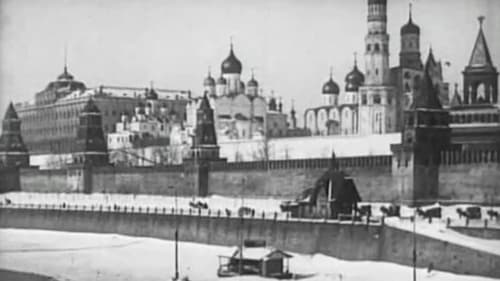
Director of Photography
The film is in four parts. First, the camera pans the Kremlin and Marshal's Bridge. Sleds are parked in rows. Horse-drawn sleighs run up and down a busy street. Next, we visit the mushroom and fish market where common people work and shop. In Petrovsky Park are the well-to-do. Men are in great coats. A file of six or seven women ski past on a narrow lane. Last, there's a general view of Moscow. A slow pan takes us to a view above the riverfront where the film began.

Director
The film is in four parts. First, the camera pans the Kremlin and Marshal's Bridge. Sleds are parked in rows. Horse-drawn sleighs run up and down a busy street. Next, we visit the mushroom and fish market where common people work and shop. In Petrovsky Park are the well-to-do. Men are in great coats. A file of six or seven women ski past on a narrow lane. Last, there's a general view of Moscow. A slow pan takes us to a view above the riverfront where the film began.

Director
Lost Polish comedy short from 1908. Not to be confused with the 1916 remake of which a small portion survives.

Writer
Lost Polish comedy short from 1908. Not to be confused with the 1916 remake of which a small portion survives.

Director of Photography
Lost Polish comedy short from 1908. Not to be confused with the 1916 remake of which a small portion survives.

Director of Photography
An excellent reproduction of the world-famed riders of Russia in their various stunts and acrobatic feats while on their thoroughbred horses.




























